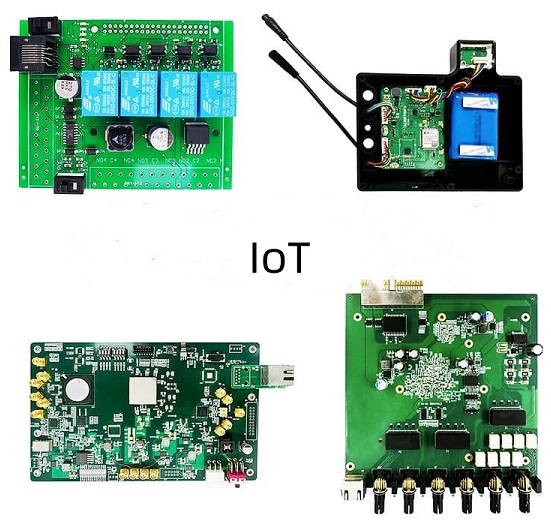
Industrial Internet of Things (IIoT) is a manufacturing method that uses Internet of Things technology.
Industrial Internet of Things (IIoT), a technology that integrates perception and communication technologies into the Industrial Production Process, integrates data collection sensors, controllers, and sensors with management and control capabilities. This brings traditional industries up to intelligent level.
Industrial Internet of Things (IIoT) is used primarily in manufacturing, transport, energy, mining and other industries. It improves the efficiency of production and lowers manufacturing costs.
Core Technologies of Industrial Internet of Things
Sensor Technology: Industrial IoT sensors are the foundation of Industrial Internet of Things. They convert physical quantities from the industrial production into electrical signals, and then transmit those signals to the backend system via the communication network.
Communications technology: communication technology is key for data transmission in Industrial Internet of Things. It must meet the demands of harshness, reliability and security for the industrial field.
Technology for data analysis: The technology of data analysis is an important way to achieve intelligence in the Industrial Internet of Things. It can analyze massive data generated during the industrial production process to discover laws and trends and provide a basis for making production decisions.
Industrial Internet of Things: Applications and Benefits
Increase production efficiency: Industrial Internet of Things (IIoT) can increase production efficiency by real-time monitoring of processes, automating production equipment and optimizing production scheduling.
Reduce manufacturing cost: Industrial IoT reduces manufacturing costs by optimizing energy usage, reducing waste and improving product quality.
Improve Product Quality: Industrial Internet of Things (IIoT) can improve product through automated inspection and real-time monitoring of quality.
Improved production safety: By monitoring production equipment in real time and detecting production risks early, the Industrial Internet of Things (IIoT) can enhance production safety.
Industrial Internet of Things (IIoT) Applications Are Used in Many Manufacturing Processes
Here are some examples:
Automobile Manufacturing Industry: The Industrial Internet of Things (IIoT) can improve production efficiency by reducing costs and increasing production efficiency.
Electronics Manufacturing: IIoT in the electronics manufacturing process can monitor product quality real-time, automate inspections and so on. This will improve product quality.
Steel Manufacturing Industry: IIoT in the steel manufacturing process can control production equipment status in real-time and warn of production risks.
Industrial Internet of Things (IIoT) is an important driving force in the transformation and upgrading of manufacturing industries. It will encourage the development of intelligent digital and networked industries.
The industrial Internet of Things will continue to develop, and its applications will be more extensive and in-depth, adding greater value to manufacturing.
Here Are Some Specific Examples of Industrial Internet of Things Applications in Manufacturing
Monitoring of production processes: Industrial Internet of Things sensors can be used to collect data on the production process, such as equipment status, parameters of the process, product quality and so on. These data are then analyzed in order to detect abnormalities in the process, and timely warnings or processing is provided.
Optimization of production processes: Industrial Internet of Things (IIoT) can improve the efficiency of production and reduce manufacturing costs by optimizing production processes through data analysis.
By analyzing data on production, for example, we are able to optimize production schedules, improve equipment utilization, and optimize the production process.
Product Quality Control: Industrial IoT is able to monitor product quality through sensors in real time and automatically filter out non-qualified products. This improves product quality.
Warning for equipment failure: Industrial Internet of Things (IIoT) can analyze data on equipment status and send out early warnings of equipment failures. This helps to avoid production losses due to equipment failures.
Management of production safety: By analyzing data from the production environment and sending early warnings of potential safety risks, the Industrial Internet of Things (IIoT) can improve production safety.
Although the application of IIoT to manufacturing is in its infancy stage, its development potential is immense.
As the industrial Internet of Things continues to mature, it will have more applications, which will bring greater value to manufacturing.









